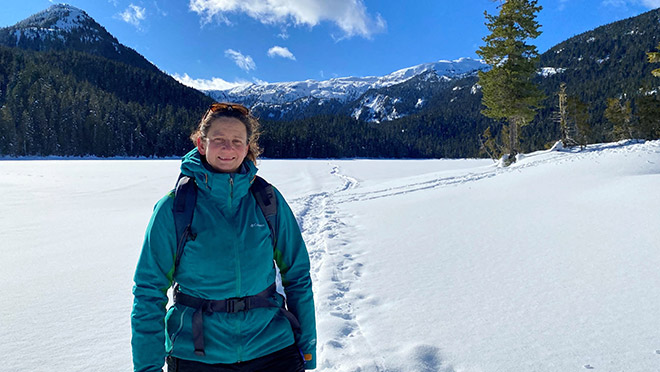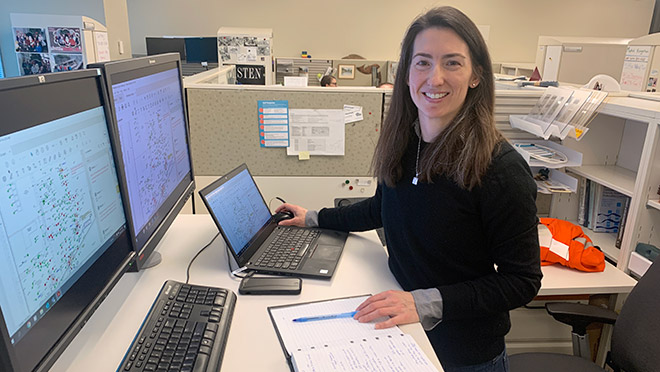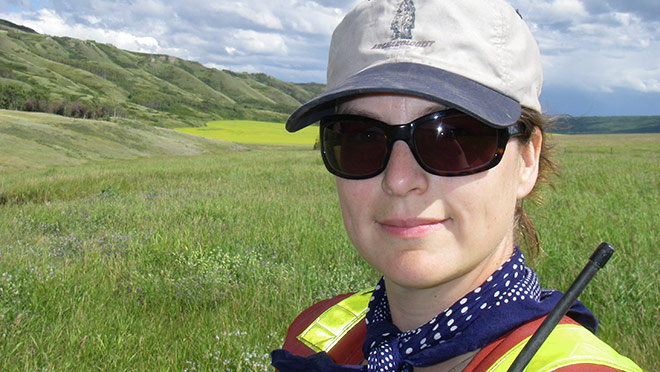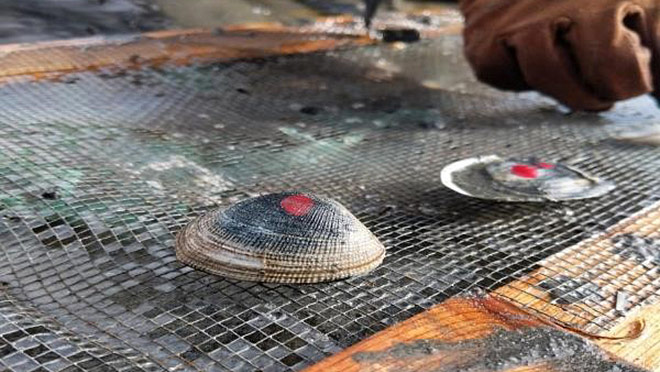Q&A with three women in science at BC Hydro

Rob Klovance
For bchydro.com
The United Nations is linking this year's International Day of Women and Girls in Science to sustainable development goals. So we took the opportunity to sit down with three women working in science jobs at BC Hydro, which uses clean energy to help B.C. reduce its reliance on fossil fuels.
Eva Wichmann is a science and biology graduate from the University of Western Ontario who has channeled her love of the outdoors – especially camping and kayaking – to a job as a senior environmental coordinator in Campbell River. She has found BC Hydro to be an ideal place to balance her career ambitions while raising a family.
Jen Evans is also a senior environmental coordinator with BC Hydro whose work centres on contaminated sites, something she got an early taste of while tackling a science fair project in Grade 7. After picking up a microbiology degree at the University of Victoria, she took the environmental engineering program at BCIT in Burnaby, then worked as an environmental consultant before landing a full-time job on a small team within BC Hydro.
Eva Brooke is a professional archaeologist who got her undergrad in cultural anthropology at the University of Northern B.C. in Prince George, and her Masters in Heritage Resource Management at Simon Fraser University. She's one of three staff archaeologists in the environment department at BC Hydro who coordinate work to manage heritage at BC Hydro.
Note that the following Q & A has been edited for brevity.
Rob Klovance: Let's start with a look back at your journey down the road of science. How early did it start?
Eva Brooke: My dad was a commercial fisherman, so growing up, I spent summers on his boat, and worked on the boat with my family. Along the coast, my dad, who had a degree in anthropology from UBC, would point out different archaeological sites and explain their importance. We also had one of those old chemistry kits: Who thought they were in any way safe with all the formaldehyde and chemicals in them? We were in the Queen Charlotte islands on our boat once, and there's a big pile of sulfur. So me and my older brothers got a chunk, and with some of the other ingredients from the chemistry set, actually made a small bomb. It may have been our first experience getting in trouble with science.
Eva Wichmann: My parents tell me I always had an interest in the environment. Living in Ontario, I had pet bullfrogs when I was four or five, much to my mother's amusement or displeasure, I'm sure. She allowed me to keep them for the summer in the bathtub, and then I had to release them in the fall. I had to catch bugs daily to feed them.
Jen Evans: My Grade 7 teacher really inspired me to come up with a science fair project, about groundwater and oil spills. I attempted to construct a groundwater model, which didn't work out. But I remained interested in the topic.

Klovance: What are your roles with BC Hydro, and how do they relate to your previous work and education in science?
Wichmann: I work in the environment field operations group, which supports our crews and planners in operations and maintenance work. For a few years before I moved out to B C. from Ontario, I had a short stint with the federal government, then went back to consulting again, and a lot of it was applied biology. I look at all the research that's been done, apply it to our operations and work to assess impacts and identify mitigation measures on various projects."
Evans: Specifically, I work with the pollution prevention group within the land team that focusses on contaminated sites. It's an area that requires specific skills – it's very niche work.
Brooke: As archaeologists, we act as subject matter experts, and we help coordinate the heritage aspects of projects and programs. Consulting archaeologists go out and do the work, as there are only three archaeologists on staff in the heritage group on the land team, and we have a lot of area to cover. From a heritage perspective, BC Hydro has the biggest physical footprint of any company in the province.

Klovance: Do you remember facing any barriers to pursuing science along the way, either as a kid or in university? And have attitudes towards women in science changed over the years?
Wichmann: I haven't faced any real barriers. Here at BC Hydro, it's a very diverse workplace, and even earlier on, at summer jobs working for engineering companies, I was lucky – I saw a number of women working in engineering roles. Even working in a male-dominated field, I never felt inferior, maybe because of my upbringing in a family where my dad was an engineer and we would banter back and forth at the dinner table about engineering versus biology.
Evans: No barriers. I've always felt encouraged. I grew up with my mom who was a single parent and she always encouraged me to do whatever it was that made me happy. I can't recall anyone ever discouraging me from chasing a career in science. Over time, what I've noticed is an increased acknowledgement of women in the workplace.
Brooke: My parents and family never treated me different for being a woman. I only actually started experiencing anything like that while going to job sites as a consulting archeologist. That was about 20 years ago, but now there are a lot more female archaeologists than there used to be, and also just a lot better understanding of the importance of heritage and exposure to archaeology at job sites. But I still run into some who don't value the protection of heritage – to some of them, I'm just the person standing in the way of getting their job completed.
Klovance: Any advice for those pursuing science as a career?
Wichmann: Look for good opportunities for summer jobs, not just jobs that pay good money. Look for relevant experience that can be valuable on your resume. It can also help confirm that you're making the right choice of career. I contrast that with a friend of mine who did the restaurant routine every summer, and had a real hard time finding a job in her field after.
Brooke: It can be hard to find jobs in archaeology, even as a volunteer, because you require experience and need to be added to a company's WorkSafe to be at job sites. My advice is to get to know people, join an association as a student member, complete a local field school, apply for a co-op program related to your field, and go to conferences to meet people. In archaeology, it's a lot about who you know, the connections you make.
Evans: Look for volunteer, co-op or work-study programs. Learn what you can about the career, and try to make connections. Don't doubt yourself.
Klovance: What is it about working at BC Hydro that most impresses you?
Evans: People at BC Hydro are very understanding about your life outside work. I appreciate the work-life balance, and I think the new hybrid approach [blend of working in the office and at home] that has come out of the COVID-19 pandemic has definitely moved the needle in terms of better work-life balance.
Wichmann: I have always been impressed about the number of women in science at BC Hydro, the diversity of internal expertise and the willingness of everyone to engage in open conversations to incorporate suggestions to reduce our impacts.
Brooke: We really do our best to avoid and reduce BC Hydro's impact on heritage sites around B.C. It's not just cost effective for BC Hydro and our customers, but it's important to preserve heritage, which is valuable to Indigenous people and communities protected under the Heritage Conservation Act. And it's non-renewable. You're never going to get it back once you've disturbed or destroyed it.
Related:
